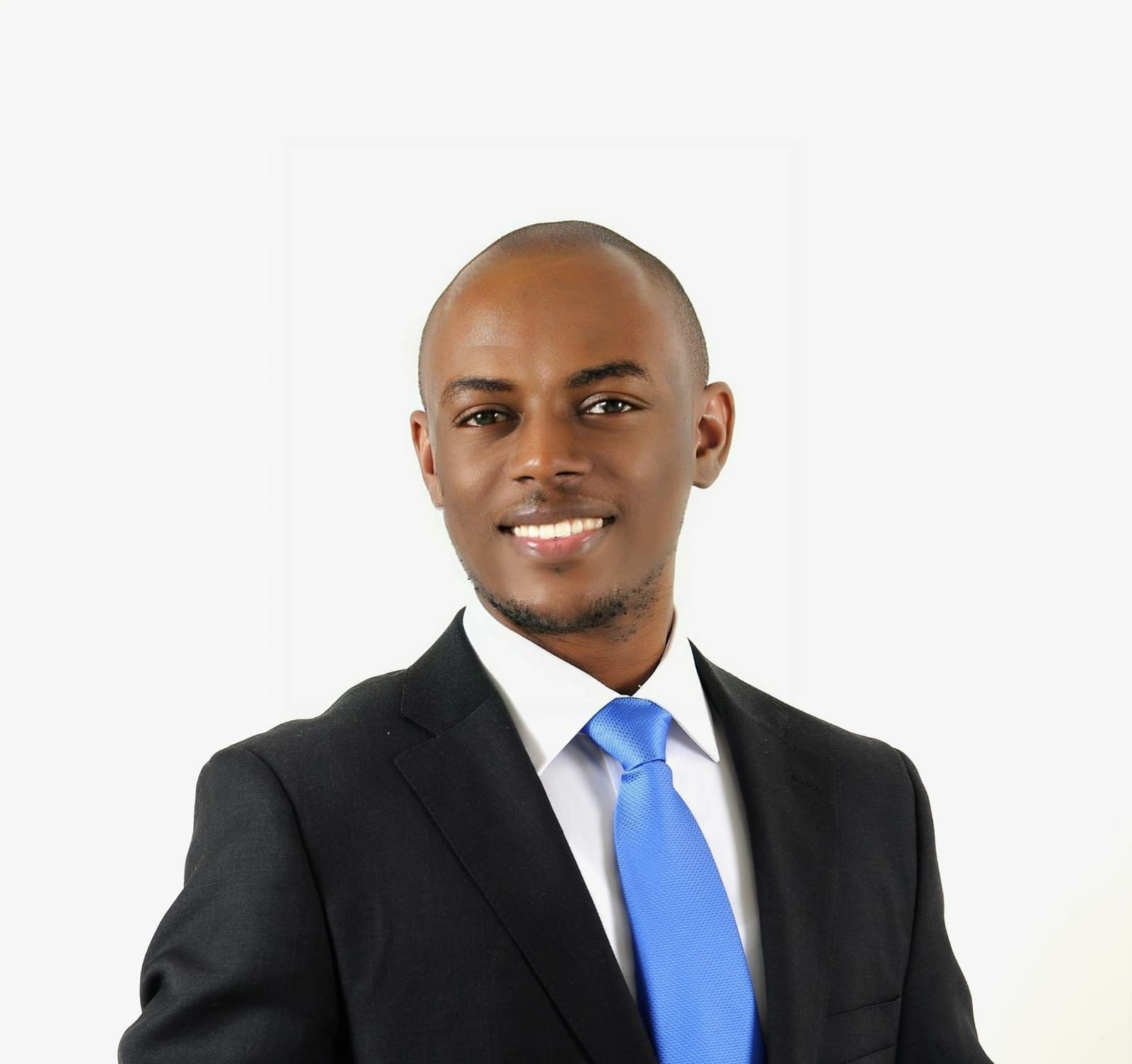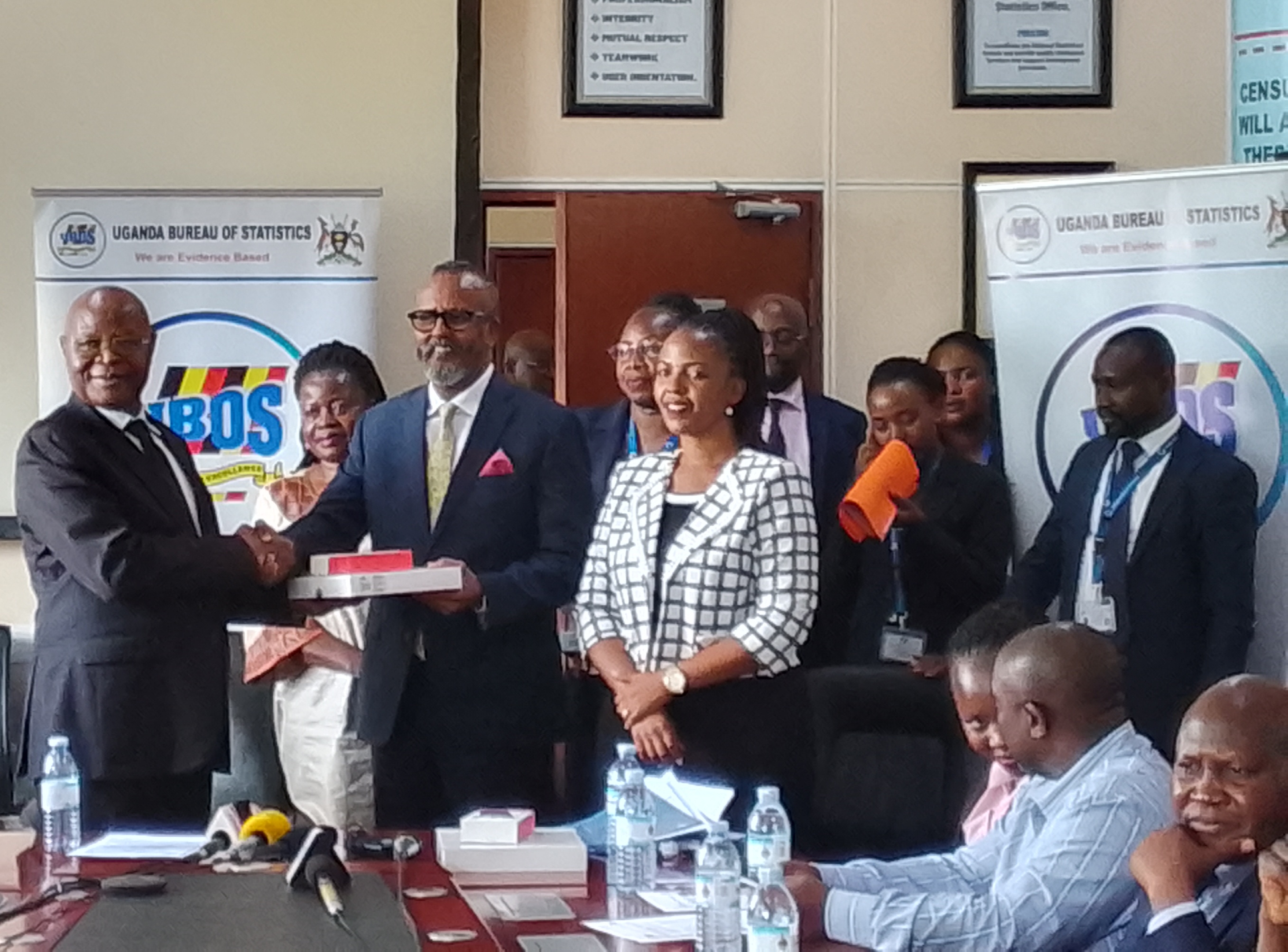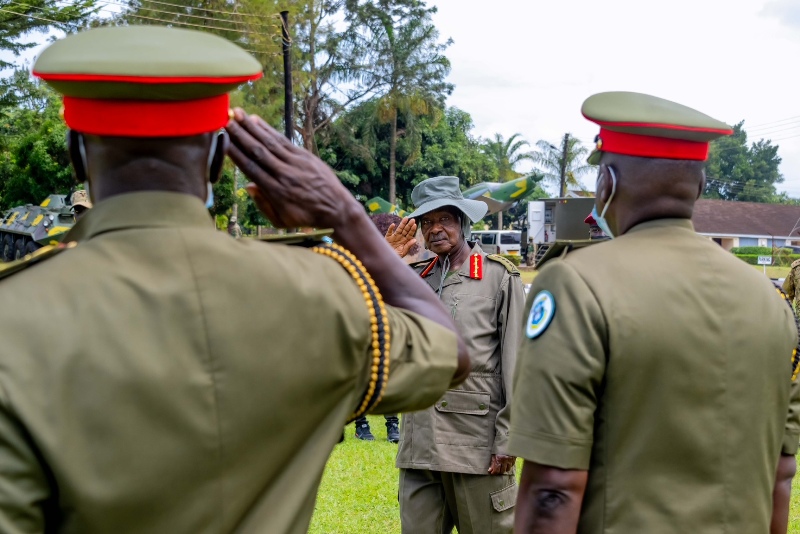Riziki Shungu: the educator empowering Congolese refugees in Uganda’s capital Kampala
Today, Shungu teaches English and business correspondence at Complexe Scolaire Katwe in Makindye division, a suburb of Kampala, the capital. It's a school whose students are all Congolese refugees, like Shungu.
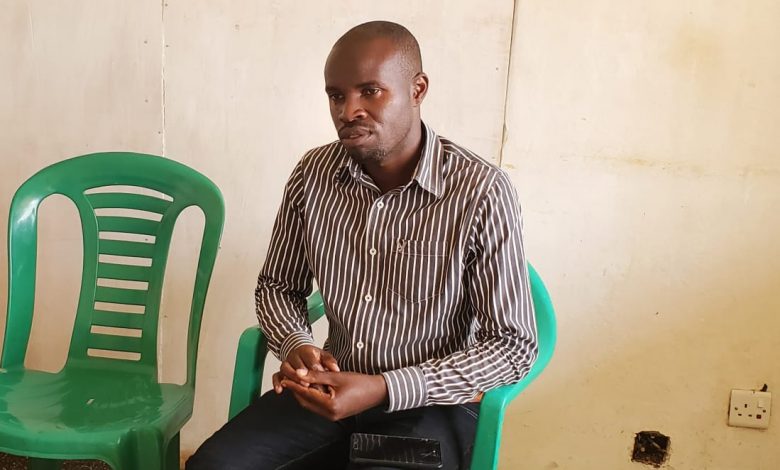
The United Nations High Commissioner for Refugees (UNHCR) and the government of Uganda report that over 500,000 Congolese refugees have sought refuge in Uganda due to political turmoil and armed conflict in the neighboring Democratic Republic of Congo (DRC).
Riziki Shungu came to Uganda as a refugee over ten years ago due to war and conflict in his native country, DR Congo.
“So my family and I were forced to move away. We came to Uganda because the place where I was there was a fight. My mother was raped. Then as a family, they decided to come to Uganda,” he reveals.
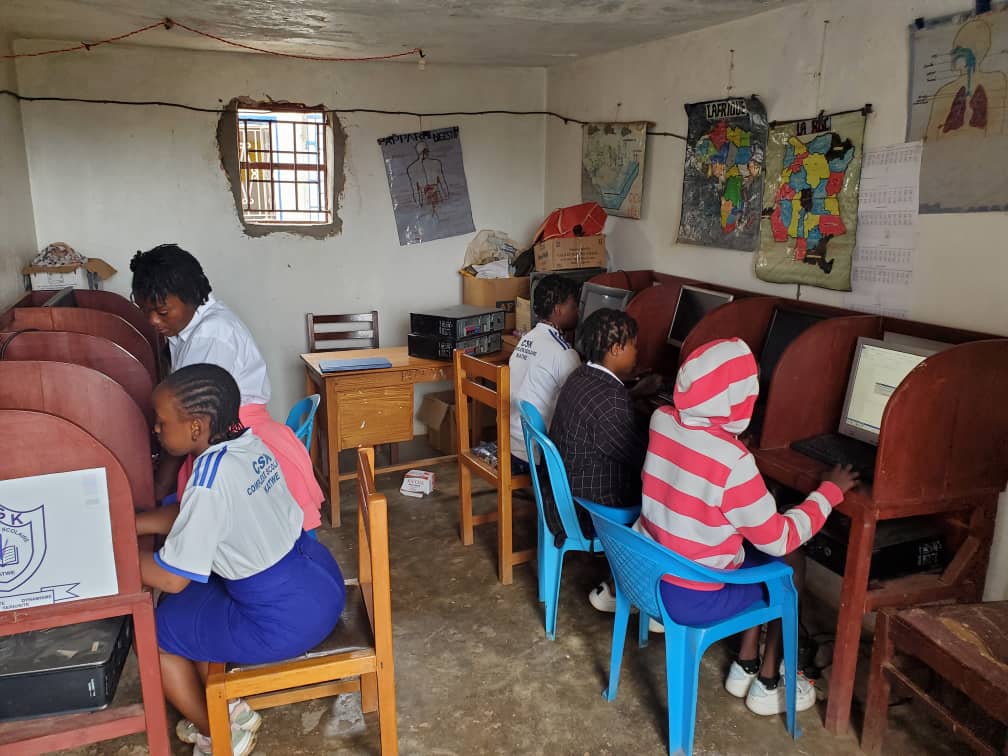
Some of the students in the computer lab learning.(PHOTO/Teddy Tracy Nayiga)
According to UNHCR, only 15% of refugees have access to higher education which is far below the global average higher education enrolment among non-refugees which stood at 39% in 2022.
Surviving in a foreign land
Looking for a means of survival in a foreign country, Riziki joined and got trained by the Finnish Refugee Council (FRC) an international organization that offers specialized adult education programmes for refugees.
“I started working with them as a functional adult literacy teacher. I was teaching the local language, Swahili. I was handling classes of these adult people who did not get a chance to go to school. I was teaching them writing and reading,” he tells this reporter.
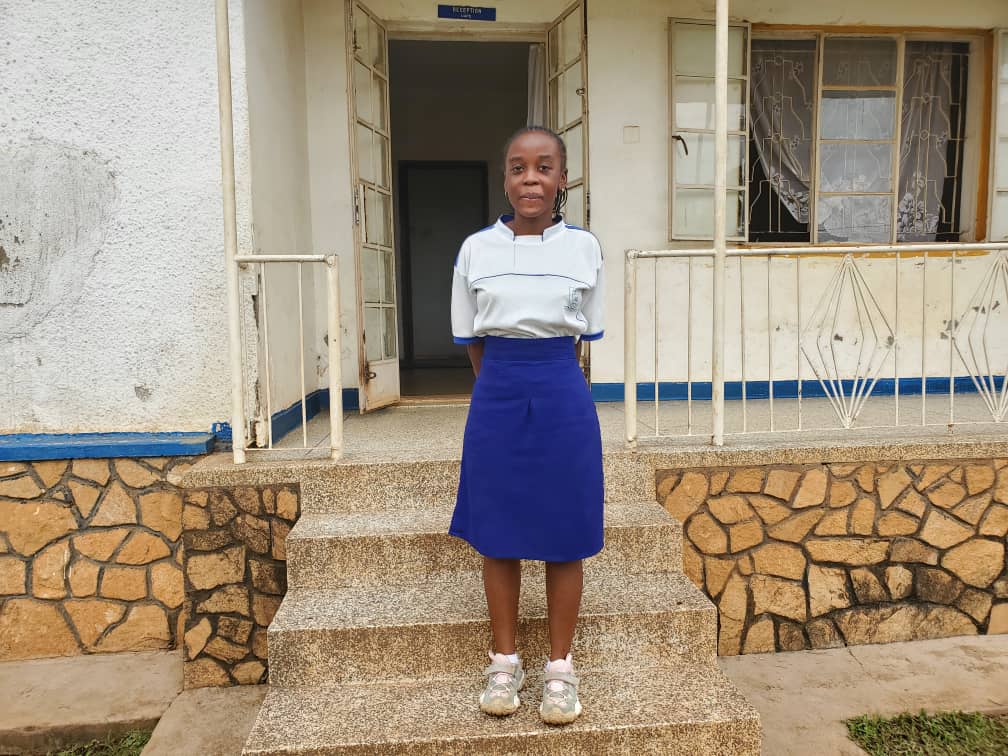
He adds that they were paid Shs100,000 monthly and transport allowances of Shs10,000 at the time.
Shungu expanded his clientele when he started teaching different people the English language from their homes, especially those from Congo.
“After teaching them, they go back to Congo or study at Ugandan schools. I taught very many people in that field. And that is how I mastered English. Because initially, I wasn’t an English teacher, I was only teaching local languages.”
Lack of access to education
SDG 4 focuses on ensuring inclusive and equitable quality education and promoting lifelong learning opportunities for all. The goal aims to address various challenges related to education, including access to education, improving the quality of education, enhancing teacher training, and promoting educational opportunities for vulnerable and marginalized populations.
As of 2021, Kampala hosted 76,500 refugees, with approximately one-third below the age of 17. Nearly 60% of these young refugees in Uganda lack access to education.
Douglas Bulongo, President of the Congolese Refugee Community in Uganda, highlights that numerous Congolese refugee children in urban areas aren’t enrolled in school due to challenges in integrating or adapting to the national curriculum. “Urban refugee children often face double the standard tuition fees when accessing schools,” he said.
Today, Shungu teaches English and business correspondence at Complexe Scolaire Katwe in Makindye division, a suburb of Kampala, the capital. It’s a school whose students are all Congolese refugees, like Shungu.
Teaching traumatized students
Teaching students who may have experienced trauma or displacement due to conflict may be a bit tricky but Shungu says he is patient with such students because he is aware of the effects of the trauma refugees face.
“We can’t chase them away because of their behaviors. So, we have just to be patient because I am sure as time goes by, they can improve. If we chase them away, they have no place to go,” he tells Charmar News.
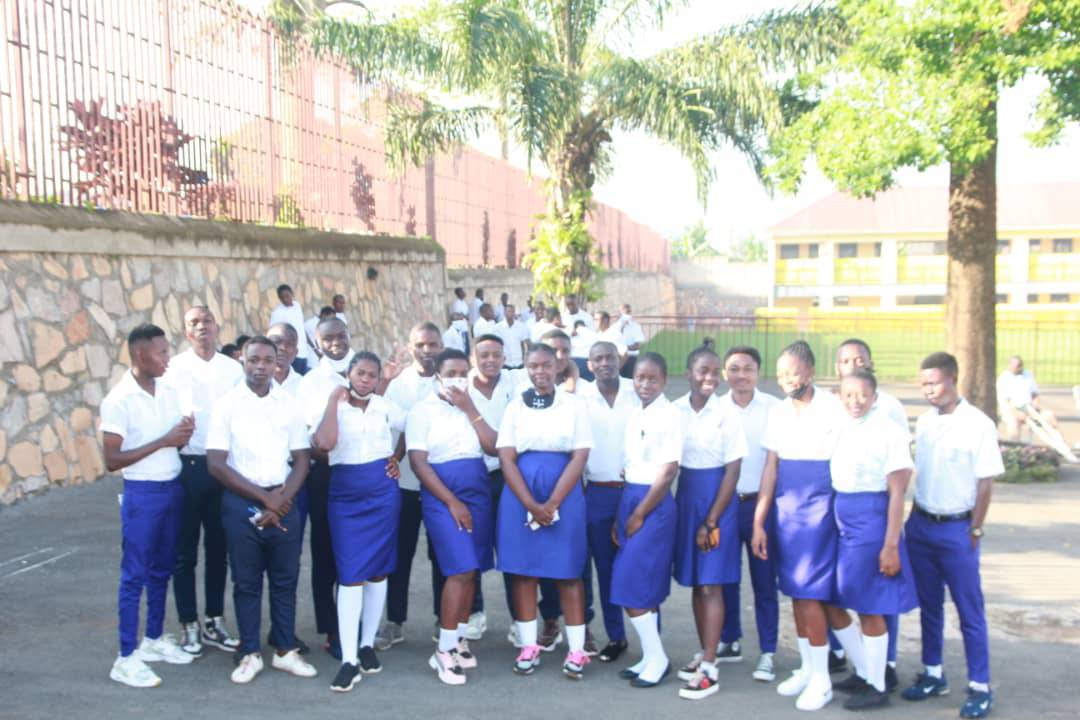
Shungu is privileged to know a variety of languages which helps him to manage language differences while conducting his lessons.
“I know all the major languages from Congo. I know Lingala, Swahili, and French. I also speak English. But in certain cases, I can also interpret it. So, I teach a local language like Swahili to make someone understand it very well,” he notes.
Teaching DRC curriculum
Speaking to this reporter, Abiragi Nyang Aristote, the Head Teacher of Complexe Scolaire Katwe, reveals that the school was started in 2016 to provide education services to refugees using the curriculum for the DRC.
Students pay $15 a month but Abiragi says parents to the students also face hardship affording the fee.
“We are refugees who leave everything we own in our home countries. So even affording school fees is hard for some parents. That’s why sometimes we are not specific about the fee; it depends on the student’s background,” he explains.
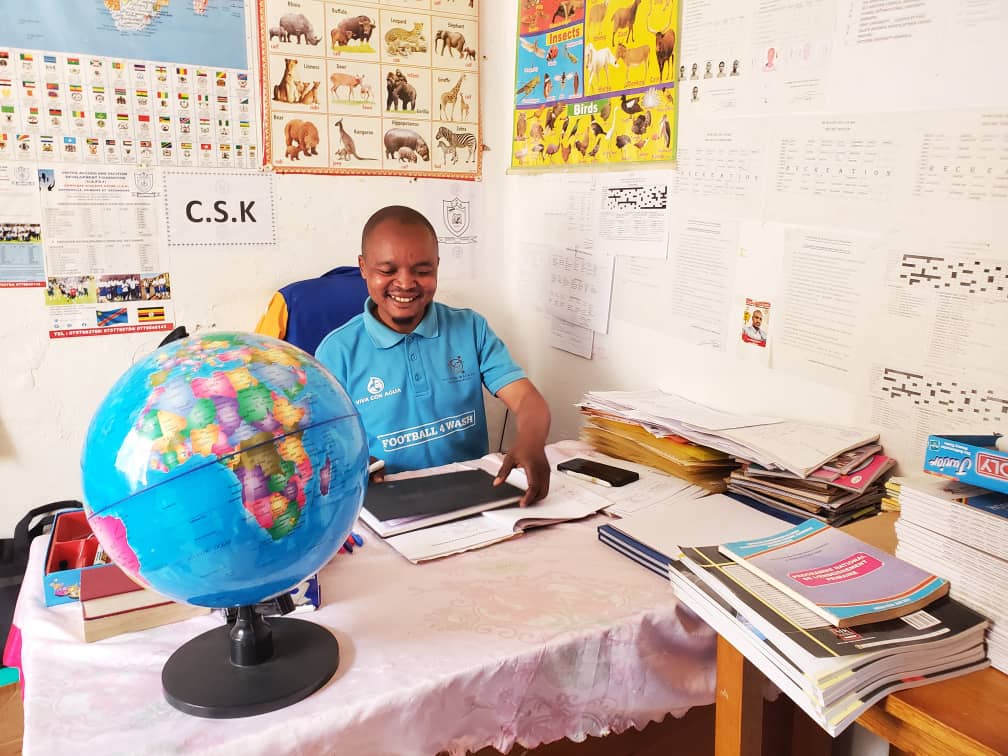
He further says that students are taught all subjects in French; DRC’s primary language but are also taught English as a subject.
“Since they are in Uganda [with English as an official language], they can’t speak only French so we also teach them English. When it is time for English, they speak English. But other times, the courses are in French. So when the teachers are teaching, they teach in French,” says Abiragi.
Unlike in Uganda, students sit for National examinations at the end of senior two and senior six. Examinations are got from Kinshasa, DRC. “And the inspectors also come from DRC, Abiragi says
According to Abiragi, over 400 students have been through the school since 2016.
Language barrier
Lydia Kataliko, 14, a senior two student says she attended Ugandan schools before joining Complexe Scolaire Katwe but she did not last long as she found hardships with the English language that was used for lessons.
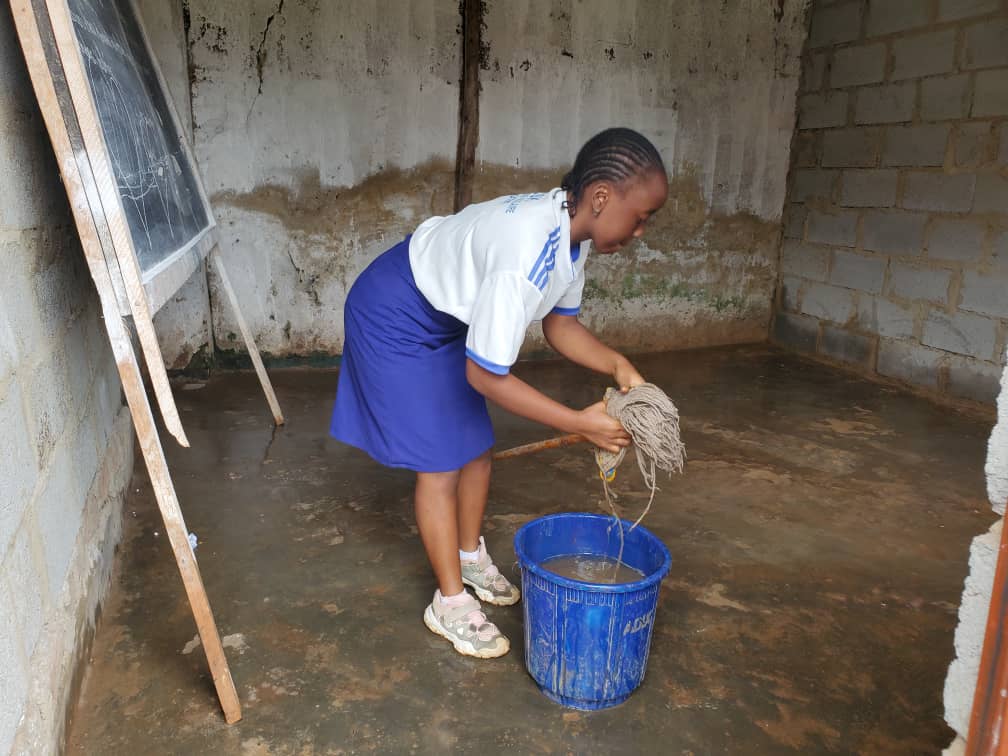
“We are taught in French here, a language that I understand. I started learning French when I was in primary one. We also have many subjects we can choose from,” she says.



